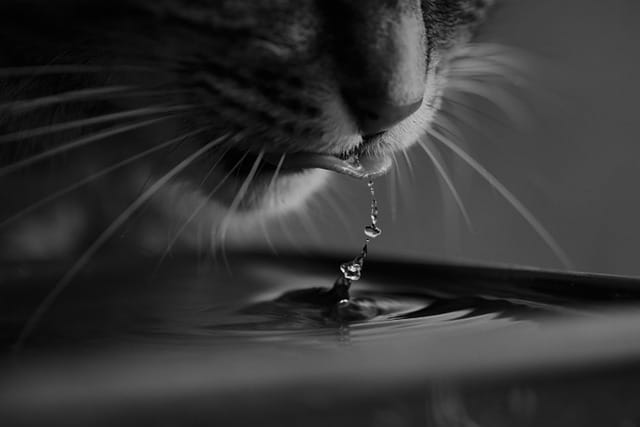
As a cat parent, you want your furry friend to live their happiest, healthiest life. While a balanced diet is crucial, sometimes your cat may need a little extra boost in the form of supplements. After years of caring for cats and exploring different options, I’ve compiled this guide to help you choose the best supplements for your feline companion. These options can address specific health concerns, improve overall wellness, and keep your cat active and comfortable.
Why Do Cats Need Supplements?
Before diving into the best supplements, it’s important to understand why they may be necessary. In many cases, your cat’s regular diet may lack essential nutrients due to:
- Aging: Older cats may require joint or digestive support.
- Specialized Diets: Certain cats on restricted or low-calorie diets might miss out on key nutrients.
- Health Conditions: Cats with issues like arthritis, kidney problems, or skin allergies often benefit from targeted supplements.
Even healthy cats can benefit from specific supplements to maintain their wellbeing.
Top Supplements to Keep Your Cat Healthy
Here are some of the best supplements I’ve tried or researched for my cats, based on specific health needs:
1. Omega-3 Fatty Acids for Skin and Coat Health
Omega-3s are essential for a shiny coat, healthy skin, and reducing inflammation. After introducing an Omega-3 supplement to my cat’s routine, I noticed fewer hairballs and a softer, silkier coat.
- Why It’s Beneficial:
- Reduces shedding and promotes a shiny coat.
- Helps with skin conditions like dryness or dandruff.
- Supports joint health, especially for aging cats.
- Recommended Product: Look for fish oil supplements like Nordic Naturals Omega-3 Pet or salmon oil drops. Always ensure the product is mercury-free and made specifically for pets.

2. Probiotics for Digestive Health
If your cat struggles with digestive issues, probiotics are a game-changer. When I introduced probiotics to my older cat, her issues with diarrhea and bloating improved significantly.
- Why It’s Beneficial:
- Maintains a healthy gut microbiome.
- Helps with diarrhea, constipation, or sensitive stomachs.
- Boosts overall immune function.
- Recommended Product: Try FortiFlora by Purina, a vet-recommended probiotic powder that’s easy to mix with wet or dry food.

3. Glucosamine and Chondroitin for Joint Health
Aging cats or those prone to arthritis can benefit greatly from joint supplements. My senior cat showed more mobility and less stiffness after just a month of using a glucosamine product.
- Why It’s Beneficial:
- Reduces inflammation in joints.
- Supports cartilage repair and joint lubrication.
- Helps cats stay active and comfortable as they age.
- Recommended Product: Look for options like Cosequin for Cats, a widely trusted joint supplement available in sprinkle capsules.

4. Taurine for Heart and Eye Health
Taurine is an essential amino acid for cats, especially if they’re on a home-cooked diet. My friend’s cat developed a heart condition due to a taurine deficiency, which was resolved with a supplement.
- Why It’s Beneficial:
- Supports heart health and prevents heart disease.
- Promotes healthy vision.
- Recommended Product: VetriScience Cardio Strength is a great option for taurine supplementation.

6. Lysine for Immune Support
If your cat has chronic upper respiratory infections, lysine can make a huge difference. After giving my rescue kitten lysine, her sneezing and watery eyes improved noticeably.
- Why It’s Beneficial:
- Reduces symptoms of feline herpesvirus (FHV-1).
- Boosts immune system strength.
- Prevents recurring infections.
- Recommended Product: Vetoquinol Viralys Oral Powder is a highly effective lysine supplement for cats.

Common Questions About Cat Supplements
1. Are supplements safe for all cats?
Yes, but it’s important to consult your veterinarian before adding any supplement to your cat’s routine. This is especially true for cats with pre-existing medical conditions or those on prescription diets.
2. Can I use human supplements for my cat?
No, human supplements may contain ingredients that are toxic to cats. Always choose products specifically formulated for pets.
3. How do I give supplements to my cat?
Most supplements come in palatable powders, chews, or liquid drops that can easily be mixed with food. For picky cats, opt for odorless and tasteless options.
4. How long does it take to see results?
It depends on the supplement and the health issue. Some, like probiotics, can show results in a few days, while others, like joint supplements, may take several weeks.
Tips for Choosing the Best Supplements
- Consult Your Vet: Always discuss your cat’s specific needs with a veterinarian before starting a supplement.
- Check the Ingredients: Avoid fillers or artificial additives. Look for high-quality, natural ingredients.
- Read Reviews: Choose trusted brands with positive reviews from other cat owners.
- Follow Dosage Instructions: Over-supplementing can be harmful, so always follow the recommended dose.
Why Invest in Supplements for Your Cat?
Adding supplements to your cat’s diet can significantly improve their quality of life. From reducing joint pain to boosting digestion, supplements address specific health concerns that regular cat food alone may not cover.
As someone who has seen the transformative effects of the right supplements, I highly recommend exploring what works best for your feline friend. Whether it’s a fish oil for their coat or a probiotic for their gut, these small additions can make a big difference.
Final Thoughts: Give Your Cat the Gift of Better Health
The best supplements for cats are the ones that address their individual needs. By incorporating options like omega-3s, probiotics, or joint support supplements, you’re investing in their long-term health and happiness.
Your cat deserves to feel their best every day, and supplements can play a vital role in achieving that. Start with a trusted product and consult your vet to ensure you’re making the right choice. Your furry friend will thank you with endless purrs and cuddles!
Best Cat Furniture of 2025: Stylish, Durable Picks Your Cat Will Actually Use
Why Consider a Stainless Steel Cat Litter Box?
How to Start TNR: The Complete Guide to Trap-Neuter-Return
Best Flea Meds for Small Cats: 3 Vet‑Approved Amazon Picks for Fast, Safe Protection
My Cat Needs to Lose Weight: Proven Tips for a Healthier Feline


